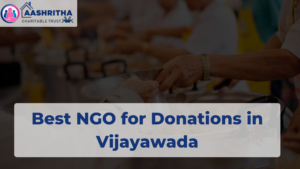Migrant workers form the backbone of India’s economy, contributing to industries such as construction, agriculture, transport, and domestic work. Yet, during times of crisis—whether a natural disaster, pandemic, or economic downturn—they are often the most vulnerable and least protected.
With limited access to healthcare, food, shelter, or legal support, migrant workers face unimaginable hardships. In such times, Non-Governmental Organizations (NGOs) become a critical lifeline, stepping in to provide urgent relief and long-term support.
Why Migrant Workers Are Vulnerable During Crises
- Informal Employment: Most migrant workers lack formal contracts, job security, or social protection.
- No Safety Net: Limited access to government schemes due to lack of ID proof, address, or awareness.
- Displacement: Crises often force migrants to return to their villages without income or support.
- Lack of Representation: Migrants are rarely part of decision-making processes or policy planning.
These factors make them highly susceptible to exploitation, hunger, homelessness, and illness during emergencies.
How NGOs Are Making a Difference
1. Providing Emergency Relief
During crises like COVID-19, NGOs across India mobilized rapidly to deliver:
- Food packets and clean drinking water
- Sanitary kits and protective gear
- Temporary shelters and night stay facilities
These services helped prevent starvation, dehydration, and disease among stranded migrants.
2. Offering Healthcare Services
NGOs organize medical camps, distribute essential medicines, and connect migrants to hospitals for treatment. Many also offer mental health support, recognizing the trauma and anxiety many workers face.
3. Facilitating Safe Transportation
During mass migrations, NGOs arranged buses, trains, and travel passes to help workers return home safely. Volunteers coordinated with authorities to ensure smooth and dignified travel for migrants and their families.
4. Legal Aid and Documentation
Without proper documentation, many migrant workers cannot access welfare schemes. NGOs help them by:
- Registering for identity documents (Aadhaar, ration cards)
- Assisting with legal grievances related to unpaid wages or eviction
- Advocating for policy inclusion at the government level
5. Livelihood and Skill Training
Once the crisis passes, NGOs focus on helping workers rebuild their lives:
- Offering skill development programs
- Supporting self-employment and small enterprises
- Facilitating job placements and vocational training
This long-term support is key to helping migrant families escape the cycle of crisis-driven poverty.
6. Awareness and Advocacy
NGOs spread awareness about:
- Health and hygiene
- Rights of migrant workers
- Access to government welfare schemes
They also advocate for better labor laws and protection mechanisms for migrants at local and national levels.
Aashritha’s Commitment to Migrant Welfare
At Aashritha Charitable Trust, we believe every worker deserves dignity, safety, and opportunity—especially during difficult times. Our efforts focus on:
- Distributing food and essentials in migrant-dense areas
- Organizing mobile health camps
- Helping families reconnect through helplines
- Offering counseling, legal guidance, and job referrals
We stand in solidarity with migrant workers and continue to work towards a future where no one is left behind in a time of need.
Conclusion
Migrant workers keep cities running, yet during crises, they are the first to suffer and the last to be heard. NGOs across India are filling critical gaps, providing not just relief but hope, dignity, and a path forward.
As a society, supporting these initiatives is not just an act of charity—it is a commitment to justice, humanity, and equity.👉 Join hands with Aashritha Charitable Trust to uplift and protect India’s migrant workers during times of crisis. Your support can be the difference between despair and dignity.





